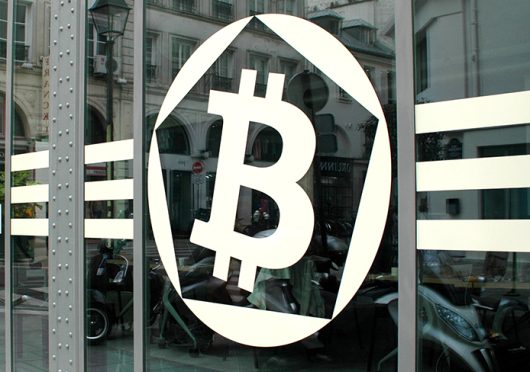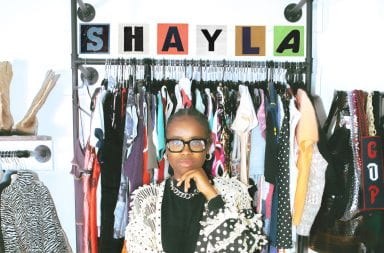
Bitcoin, a digital cryptocurrency system that acts as an alternative to federally recognized currencies like the U.S. dollar, has wavered in value over the past year. Credit: Courtesy of TNS
While Columbus seems to be gradually getting interested in Bitcoin, an Ohio State student’s Bitcoin startup has been operating out of a Silicon Valley business accelerator.
Bitcoin is a digital cryptocurrency system developed by a secretive programmer in 2008. It’s an alternative to federally recognized currencies like the U.S. dollar.
Bitcoins can be earned by solving equations with a computer, a process called mining. When a computer mines successfully, it’s rewarded with bitcoins, like when a miner finds gold. The reward is programmed to decrease at intervals until no new bitcoins are generated, so mining has become less profitable over time.
Much like gold and silver, the price of a bitcoin fluctuates. A bitcoin was worth more than $1,000 in December 2013, but today it’s worth about $250, according to Coinbase, a Bitcoin transaction website.
Owning Bitcoin isn’t like owning a physical commodity since you can’t touch it, but obtaining it isn’t difficult: First, download a bitcoin wallet. Second, buy some bitcoins.
Jad Mubaslat, a fourth-year in biomedical engineering, is one of the people making it easier to buy Bitcoin. He founded BitQuick.co in 2013, a startup which facilitates buying Bitcoin from other people online.
Mubaslat was one of the first students to publicize Bitcoin at OSU. Last year, he encouraged Backroom Barbershop and Salon owner Shawn Mensi to start accepting Bitcoin, and in the fall, it became the home of Columbus’ first Bitcoin ATM.
In spring 2014, Mubaslat founded the OSU Bitcoin Group, a student organization that advocates for Bitcoin usage. It’s advised by Alan Chalker, director of technology solutions for the Ohio Supercomputer Center at OSU.
Chalker said he has been following Bitcoin since it was created and was eager to talk to others about it and other cryptocurrencies. Part of his job is coordinating requests to use the OSU supercomputer, and on occasion, he gets requests to use it for Bitcoin mining.
“Nowadays, it’s a complete waste of resources and funding to do it,” Chalker said. “We’ve had a couple situations where graduate students are supposed to be doing other things on our system that we’ve discovered were trying to mine bitcoins, and we’ve shut them down.”
However, Chalker said he is beginning a research project that will determine if other cryptocurrencies can generate enough of a profit to justify using OSU’s supercomputer.
The OSU Bitcoin Group is made up of both students and community members, Chalker said. It recently elected a new president, Ben Fershtman, a first-year in pre-biomedical engineering.
Fershtman said he wants the club to focus on philanthropic opportunities with Bitcoin and help other students, like Mubaslat, who have relevant ideas.
“I’m not sure how many ideas will come through, but I’d like to see some,” Fershtman said.
After expanding his business from the U.S. to Taiwan, India and the Middle East, BitQuick’s growth was stagnating, Mubaslat said.
Mubaslat and BitQuick chief operating officer Chad Davis, who works on the business full-time, traveled to North Carolina for a Bitcoin conference in 2014. There, they met venture capitalist Adam Draper, chief of Boost VC, a Bitcoin business incubator in California.
Boost, a “Bitcoin accelerator,” invests in 20-30 companies twice a year, providing amenities like housing and office space for the companies they choose, according to its website.
“He told us that we need to start focusing, and he thought we were spread out,” Mubaslat said.
They applied for Boost’s fifth “tribe” of businesses six months later. After deciding to take Draper’s advice and focus on the U.S., Mubaslat said they applied on the last possible day.
A week later, Draper called them with good news: BitQuick was chosen to be a part of Boost’s tribe.
“Me and Chad were psyched,” Mubaslat said.
For BitQuick’s tribe, Boost has gone “Full Bitcoin,” meaning that all of the companies it has chosen to invest in are Bitcoin companies, according to their official blog. BitQuick is one of 24 Bitcoin-based businesses which has been operating out of Boost’s space in the Silicon Valley for the last three months.
In addition to space, mentorship and promotion, each business will receive 300 bitcoins at the conclusion of the incubator in May, currently valued at about $73,000, based on the current value of bitcoins on Coinbase.
Since joining Boost, BitQuick has had consistent growth, Mubaslat said. The week before leaving for Boost, they had $22,000 worth of Bitcoin transactions and 81 unique users. Those numbers have climbed week-by-week, reaching $73,000 worth of transactions last week as well as 130 unique users.
BitQuick has upgraded, too. They started using a three-password encryption method for each transaction and are now insured for $250,000 worth of bitcoins through a BitGo institutional Bitcoin wallet, a computerized “wallet” with extra online security for institutions.
They also started using ID verification through Netverify, an online and mobile payment identity verification company, to exclude black-market activities from the service, which Mubaslat said is a common problem with Bitcoin services.
Mubaslat said Bitcoin keeps distancing itself more and more from the black market, citing the rise in Bitcoin acceptance by businesses like Microsoft and increased investment in Bitcoin from major players like the New York Stock Exchange.
These uses have the potential to increase as Bitcoin support is added to payment software used by businesses, as well as mobile applications, Chalker said.
“You’ve got Apple Pay and Google (Wallet), more and more of these electronic payment things, and it’s great for Bitcoin because it’s just another flavor to it,” Chalker said.
Meanwhile, Mubaslat is still enrolled at OSU and plans to graduate on time in May.
Mubaslat said he might move the business back to the Silicon Valley after graduation because of the connections he has made there.
Fershtman said he would “absolutely” take an opportunity like Mubaslat received for BitQuick.
“That’s the dream right there, going to Silicon Valley and getting the opportunity to work on something like that,” Fershtman said.
Mubaslat agreed.
“I feel like I’m living the dream, honestly,” he said


![Local fashion experts guide college students through shopping and dressing for their upcoming summer jobs or internships. Credit: Dreamstime (via TNS) [Original caption: How does smart casual differ from snappy casual, glitzy casual, dressy casual, party casual and business casual?]](https://www.thelantern.com/files/2024/04/LIFE-FAM-BORGMAN-COLUMN-DMT-7432064dd4242c4c-384x253.jpg)